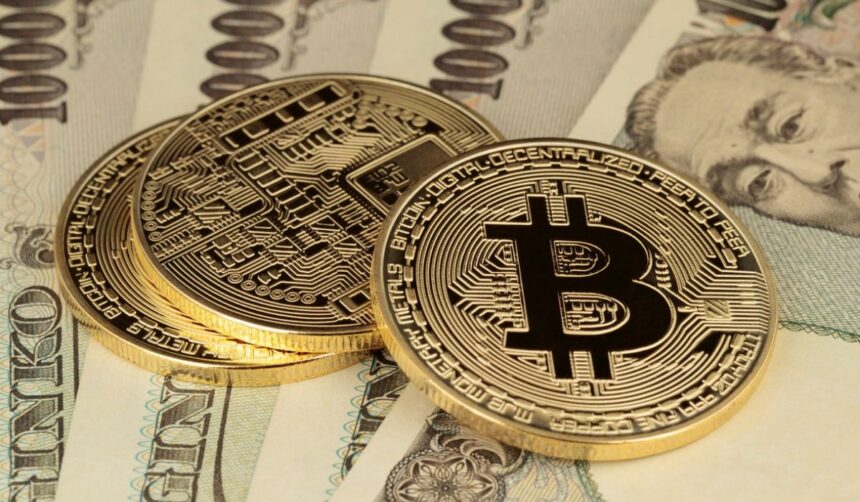The Japanese yen has plummeted to unprecedented depths against Bitcoin.
As the third-most traded fiat currency globally, the yen’s value has stagnated in the face of Bitcoin’s dominance.
This decline in the yen’s worth reached a historic low not seen in 34 years, reflecting the struggles of authorities to combat hyperinflation within the Japanese economy.
Reports from Bloomberg attribute this downfall to the stark variance between local interest rates and those set by the U.S. Federal Reserve.
While Japanese policymakers grapple with this economic challenge, Bitcoin has emerged as a formidable competitor, surpassing the yen in direct monetary value.
On April 25, data from Google Finance illustrated a stark reality: one Japanese yen equated to zero BTC.
The ascent of Bitcoin against various fiat currencies, including the yen, gained momentum in February, reaching unprecedented highs in approximately 14 nations.
This surge was fueled by the enthusiasm surrounding the approval of spot BTC ETFs.
Social media platforms buzzed with praises for Bitcoin as a symbol of “sound money” and an instrument capable of fostering financial liberation from the constraints of traditional global economic systems.
Many users echoed sentiments similar to those expressed by BTC advocate Michael Saylor, lauding Bitcoin’s superior design.
They referenced Satoshi Nakamoto’s ingenious system, which ensured a finite supply of 21 million BTC.
This scarcity is ingrained within Bitcoin’s blockchain, making it impossible to surpass this predetermined limit.
Also, Bitcoin’s protocol incorporates halving events, which systematically reduce the rate of inflation by diminishing the number of new tokens introduced into circulation.
Recent discussions surrounding the halving event, overseen by Bitwise CIO Mat Hougan, suggest that Bitcoin stands to reap long-term benefits from this mechanism which solidifies its position in the market.










